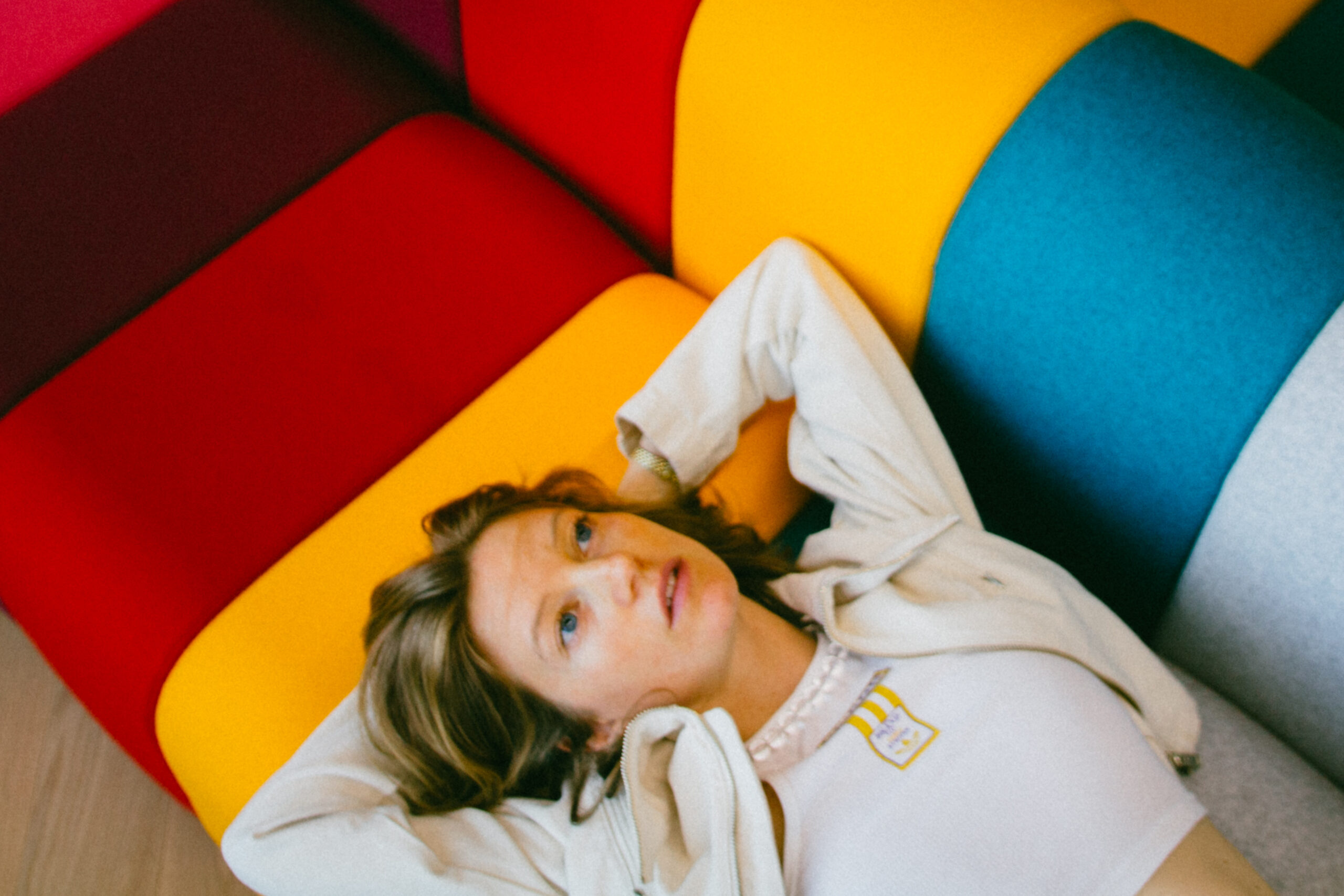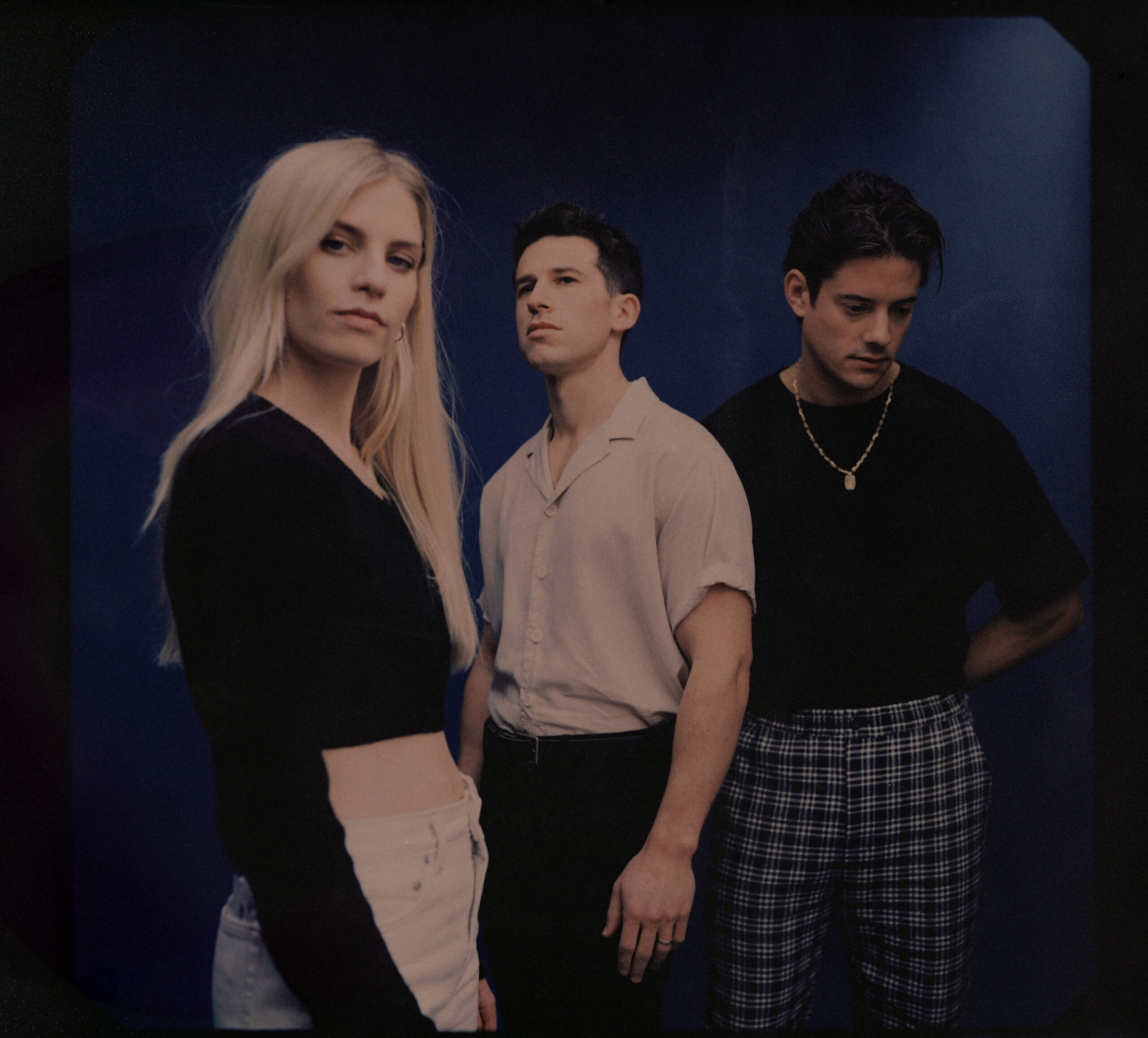Foto-© Alex Waespi / Ministry of Sound
London Grammar, war da nicht mal was? Es ist nicht impertinent, so einzuleiten. Bisheriges der Band liegt schon eine Weile zurück. Das Trio debütierte 2013 mit If You Wait, vier Jahre später folgte das zweite Album Truth Is A Beautiful Thing. Der Zeitraum zwischen der letzten und neuesten Veröffentlichung Californian Soil ist ähnlich lang, auch bedingt durch Pandemie-Verschiebungen. So hatten Sängerin Hannah Reid, Gitarrist Dan Rothman und Keyboarder Dominic „Dot“ Major Zeit, sich zu überlegen, wie es weitergeht.
Die Grundkonstellation ist bekannt. Zuerst kommt Hannahs beeindruckender Kontraalt, dem sich die Musik unterordnet. Klar kann schon mal ein Dance-Beat hineinrutschen, aber nicht so, dass die Protagonistin verdrängt wird. Melancholische Stimmung ist bei London Grammar überwichtig, sie zieht sich wie ein konstanter Faden durch die ersten beiden LPs. Nur geht es oft auf Kosten der Spannung. Manchmal plätschert es wie ein Boot bei Sonnenuntergang auf ruhigem Wasser.
Doch jetzt hat sich was getan. Der Vortrag ist selbstbewusster, man hört mehr Nuancen. Deutlich wird das besonders in Lord It‘s A Feeling, hier wirkt die Band entschlossen, benutzt die Sängerin zur Unterstützung ihrer Haltung forsch das F-Wort. Hannah findet, dass es für sie als Frontfrau an der Zeit ist, sich solche Freiheiten zu nehmen. In einer Vorankündigung hat sie Californian Soil als feministische Platte und als Statement gegen Misogynie beschrieben. Im Interview äußert sie sich offen dazu. Zudem steht sie gängiger Praxis in der Musikindustrie nicht unkritisch gegenüber, die zu Verschleiß und Krankheit führt. Spannend.
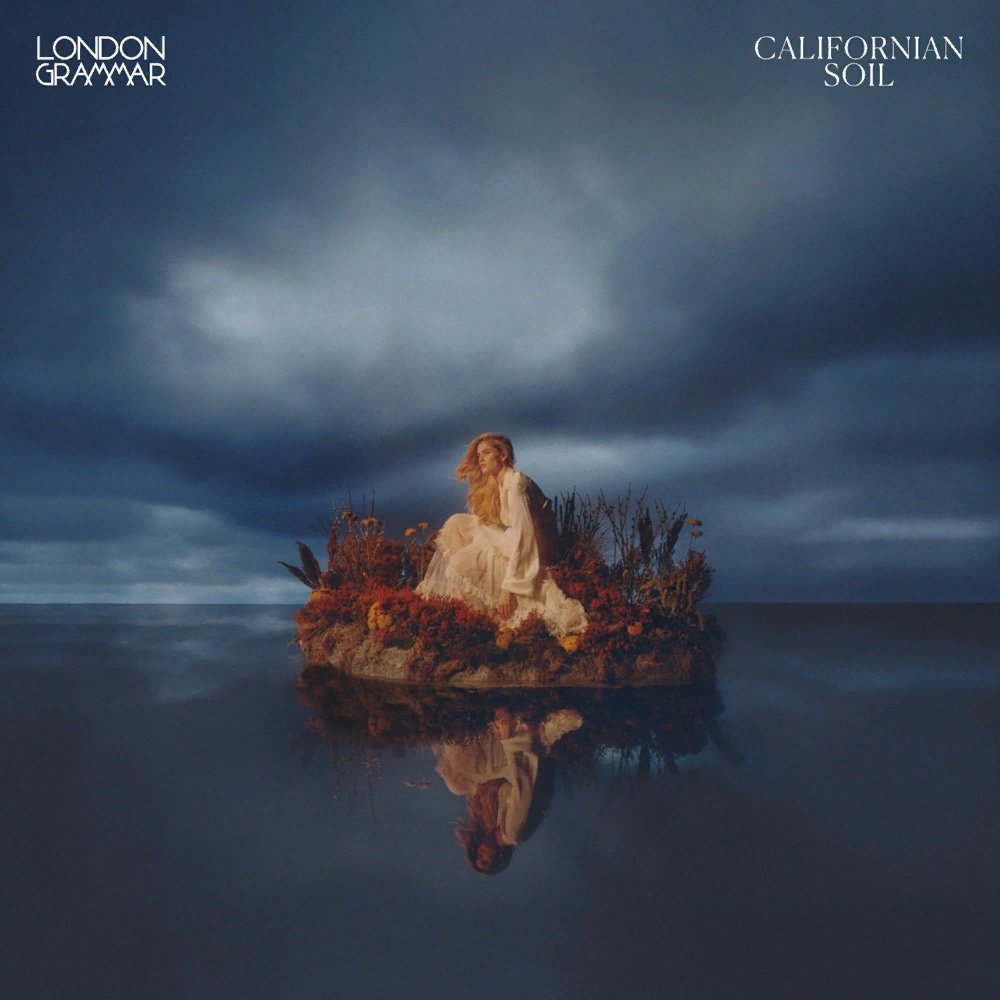
In a statement given to us beforehand you are quoted as saying, that there needs to be a leader in the band, and that this leader can only be you. How do you think you have to lead London Grammar?
Me and Dan and Dot are quite polite, we‘re quite British and we don‘t want to upset anyone. Still I felt that in our career there were a few moments where I wanted to be a stronger leader for us. People have to respect us as a band and what we do. We can make this a really professional thing that‘s going to have longevity, rather than burning out which you see happen so much in this industry. Also being the woman in the group I sometimes felt I was treated differently to the boys.
In what way have you been treated differently?
I battled a lot more to be taken seriously as a musician. I could be in a session and people would always be surprised that I play the piano. It was just the assumption that I maybe took care of the melodies or just the lyrics and the boys took care of everything else, that was an overriding thing. I also battled a lot more with my identity, with the way that I look, that I needed to look this way or that I should wear that. The boys never had to worry about any of that stuff. There were loads of things that kept happening, that were very annoying.
Who were these people, record company employees, managers, producers, journalists?
People under all those categories at various times. I have been doing this now for ten years. Over the course of that period I had experiences from all those different kinds of walks of life within the industry: a crew on tour, producers, even interviewers. They were asking the boys questions about the music as though I wasn‘t there. It happened a lot. Now I‘m no longer surrounded by anybody like that which is really great.
It‘s completely stupid to assume you haven‘t got any say in it as a woman.
I know, yeah…(laughs). I think it is really fascinating, because I think it goes back to a very primitive assumption, that I could be the ethereal one who took care of the emotions. But the real work, the serious bit was the manly bit and was taken care of by the boys. I always found that interesting. If it happens enough it can affect your confidence, and that‘s what I felt happened to me. I have to caviar this by saying I have spoken and worked with amazing men who aren‘t like that at all.

Do you read reports or autobiographies by female persons in order to find out what had happened to them in a similar situation?
I‘ve watched a lot of documentaries, the Whitney Houston one, the Amy Winehouse documentary, I read parts of Hillary Clinton‘s autobiography, and a lot of interviews. I‘ve actually been really influenced by the younger generation of female artists now coming up and producing music. They speak about it and have been role models for me, because I think they have a whole new perspective on the world. Billie Eilish, who is so unapologetic herself, sees the world in this whole new way. It‘s nice that I find that those younger artists are also role models for me.
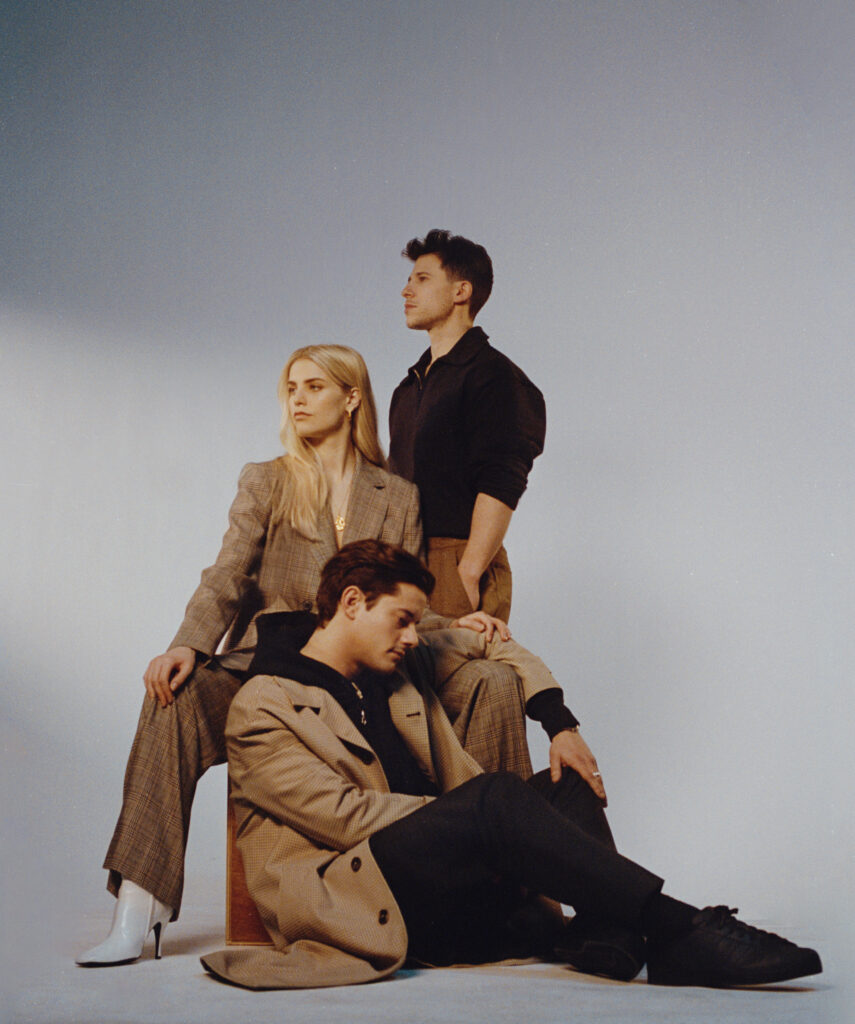
You spoke of the dangers of burning out when you‘re part of the music industry. Obviously you‘ve toured the first two records quite a bit. During that time, did you fear that no one‘s pulling the brakes, that there are dangers you have to deal with?
Oh yeah, I had those moments. I remember having an impacted wisdom tooth and it needed to be removed as soon as possible. I couldn‘t really sing properly. Nonetheless I was coerced into doing gigs anyway and I had to be on pretty strong pain medication. I was in America and I did a gig having taken Vicodin, which is like…well, they don‘t have that medication in the UK is all I‘m going to say. I didn‘t really remember the gig afterwards and I remember thinking there‘s something about this that isn‘t right, because if my voice goes or something in my throat goes or I end up not taking care of this whole area and your whole body, there‘s going to be nothing left for the future. I did a lot of gigs where I wasn‘t well and forced myself through it. Ultimately I ended up developing a condition called fibromyalgia, which I now battle partly as a result of pushing myself so much.
Unfortunately you also had problems with stage fright in the past. Are you feeling better now on stage?
I guess I‘ll always be nervous and a bit terrified, but looking back on that whole thing I‘m not sure how much of it was stage fright. The more tired you become, the more your voice is suffering, the more anxious I sort of became on stage, because I just felt I couldn‘t do the job properly. Now I think it has changed. I hope I might start to really enjoy the gigs whole a lot more and have a lot more to give, because now my priority is to protect my voice and not overworking.
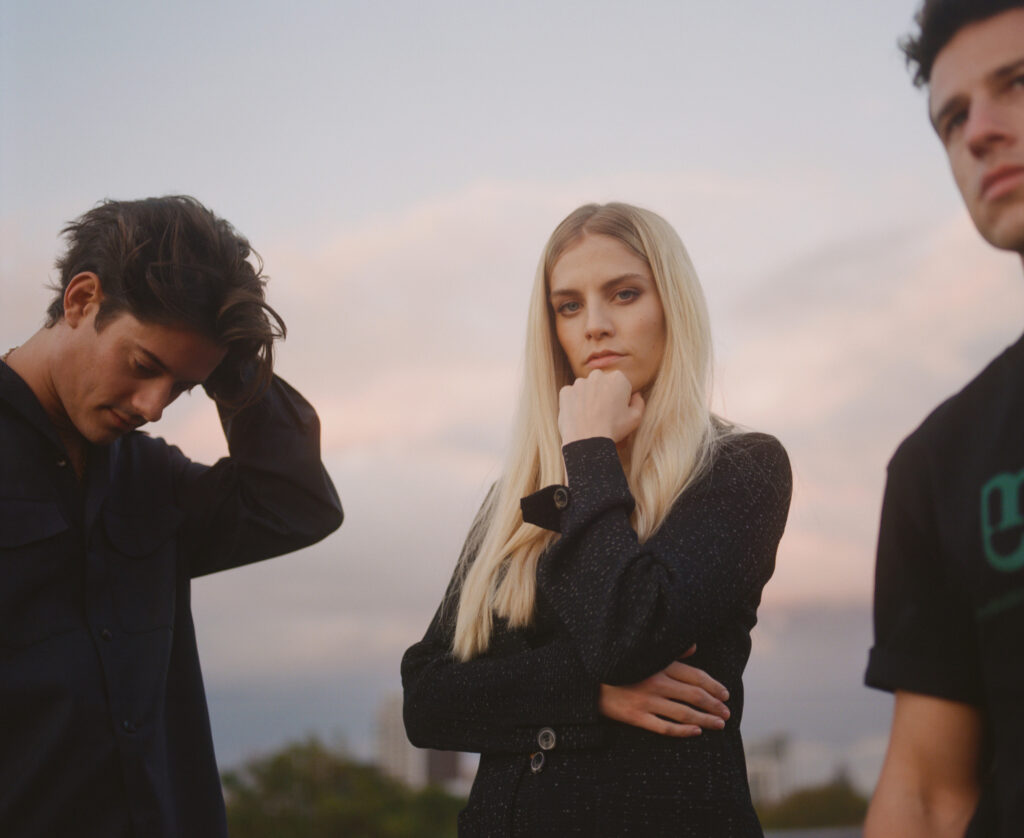
What do you do to keep and improve the quality of your voice?
It is an interesting point you touch on. You have to treat your body as though you‘re an athlete. As soon as I start being unhealthy and I don‘t exercise, it‘s a recipe for disaster. There‘s a slight misconception that singers go on stage, sing a few songs, walk off and that it‘s easy. But actually you have to be pretty fit and healthy. I‘m trying to start training again and running and things like that before our gigs in November.
Let‘s talk about the music a bit. I think everything‘s sounding a bit fuller now compared to the first records. Is that a sign of greater self-confidence?
It‘s interesting that you say that because some people feel I‘m more centre stage on this one, but I know what you mean. I actually feel that it is in the music that we push the boundaries of what London Grammar are on this record, and it does sound different. My lyrics are kind of dark, but the music was evolving so much and I wanted that to be a contrast in the album – that the lyrics could be dark and still melancholic, but the music around it sometimes had more energy to it or was a bit more upbeat.

The song Californian Soil starts with a hip hop beat and there is an early 90s dance vibe in Baby It‘s You. When you‘re singing songs like that, do you find it‘s a different mindset compared to the more introspective All My Love?
Yeah, there is a difference. With Californian Soil Dan had made this loop and this guitar part and I just adored it. In moments like that I have the freedom to use some stream of consciousness. I‘m not trying to impress people with how high I can go or how low I can go. I was just jamming with the music the boys have written. All My Love is a song that I have written on the piano and that song it just about my voice really, more than anything else. We always have those sides in us as a group.
If you had the chance to work with somebody outside of the band, who would it be?
Elizabeth Fraser of Cocteau Twins would be one, and I would love to work with Miley Cyrus or Lizzo. I love The National, I‘d love to collaborate with them. I love the fact that, similarly to Elizabath Fraser, you don‘t always know what he is saying. High Violet is my favourite album of theirs, but sometimes I‘m not completely sure of what he is saying. I listen to it again and again, I psychoanalyze him almost and I love that about them.
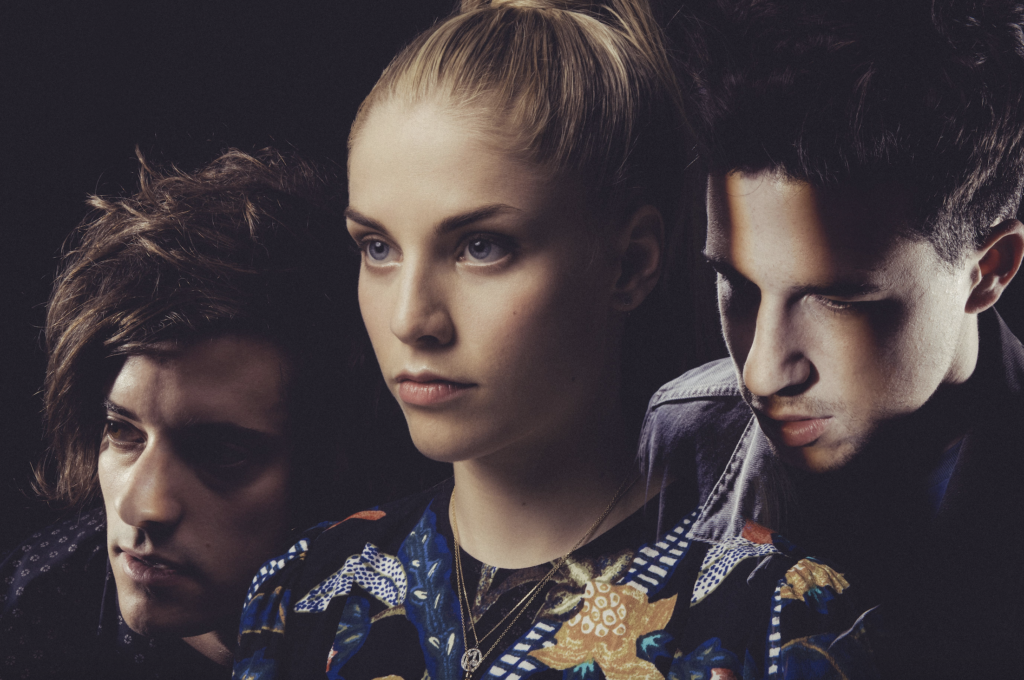
I also want to know how you are dealing with the effects of the pandemic. Since you‘re not on the road, do you write more songs than you would under normal circumstances?
Yeah, we‘ve actually written the best part of the fourth album this year, because we haven‘t been on the road. I think it depends, some people find being on the road really inspiring, other people get very burnt out by being on the road. I think we‘re the kind of band that can‘t write a record whilst touring, which is why there‘s always such a long gap between our albums. This time around it has been really interesting, just to finish one album and then the creative process has just carried on and I‘m grateful for that.
What does it sound like, the fourth album?
It sounds quite different again. I‘ve definitely written some very tragic sounding country songs, which was slightly new for me. I was influenced by Kacey Musgraves in those moments. I really like the druggy feel in her latest album Golden Hour.
London Grammar‘s first two albums have been very popular, both in the UK and in Germany. How important is commercial success for you?
I don‘t think we‘ve ever been commercially successful. I don‘t know what that even means anymore, because the music industry has changed so much. I love pop music, I always have done. What I hope for us is that we can experiment and do both. We can have songs like Talking on this third album, or Wasting My Young Years or All My Love or Hey Now. On the other side we can also have dance tracks like Baby It‘s You and Lose Your Head. As long as we‘re fulfilling our potential in what we want to do, that‘s all that really matters to me.









